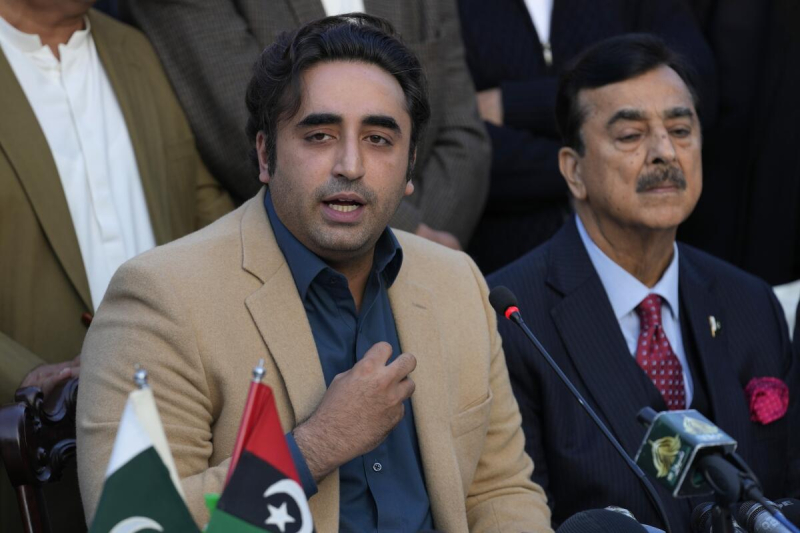- Nation Votes Tomorrow in 13th Poll, Referendum |
- Key in your hands, use it wisely: Prof Yunus tells voters |
- Yunus Urges Voters to Shape a ‘New Bangladesh’ |
- Bangladesh Polls: Campaign Ends as Voters Weigh Pledges |
- Bangladesh Heads to First Gen Z-Driven Competitive Poll |
Pakistan's ex-premier Sharif and allies agree to a coalition

Pakistan ex-premier Sharif and allies agree to a coalition
ISLAMABAD, Feb 14 (AP/UNB) — The party of Pakistan's former Prime Minister Nawaz Sharif and its allies announced late Tuesday that they will jointly form a coalition government, ending the uncertainty since last week when no party won a simple majority in parliamentary elections.
The latest development came hours after the parties — all of them rivals of the country's imprisoned former Prime Minister Imran Khan — met in Islamabad.
The meeting was attended by the Pakistan People's Party of former President Asif Ali Zardari and by Sharif’s Pakistan Muslim League, including his younger brother, Shehbaz Sharif, who replaced Khan when he was ousted through a no-confidence vote in parliament in 2022.
At a news conference with Zardari and other politicians, Shebaz Sharif did not say who would be the joint choice for prime minister, though it is widely believed that Sharif would head the new government. In his brief remarks, Sharif said that the talks on a coalition were successful.
“We have decided that we will form the government jointly," Zardari said.
A spokesperson for the Pakistan Muslim League, Marriyum Aurangzeb, said that the elder Sharif — a three-time prime minister — had nominated his younger brother for the prime minister role.
The Pakistan Muslim League party had been in talks with Zardari and other allies after Thursday's election for the National Assembly or lower house of the parliament.
Though candidates backed by Khan's Pakistan Tehreek-e-Insaf party won 93 out of 265 National Assembly seats, it was not enough to form a government. Sharif's Pakistan Muslim League and Zardari's Pakistan People's Party won 75 and 54 seats respectively.
The surprisingly strong showing for Khan's party were a shock for former Prime Minister Nawaz Sharif who was marked out as the powerful security establishment’s preferred candidate following his smooth return to the country last October.
Pakistan’s military has always cast itself as the ultimate arbiter in who becomes prime minister.
Tuesday's move by the rivals of Khan came hours after Khan's PTI party refused to hold any talks with them. Khan, who is currently serving multiple prison terms because of convictions on charges of corruption and violating a marriage law, was disqualified from contesting the vote.
Members of Khan’s party also had to contest the vote as independent candidates after the Election Commission and Supreme Court stripped his party of its electoral symbol, which helps illiterate voters find candidates on the ballot. They also imposed other legal barriers.
Khan's party says last Thursday's vote was rigged to stop it from getting a majority in the parliament, a charge the election officials denied.
Under the constitution, Pakistan's President Arif Alvi will convene the inaugural National Assembly session before Feb. 29 so that lawmakers can be sworn in. The parliament will later elect the new prime minister.

